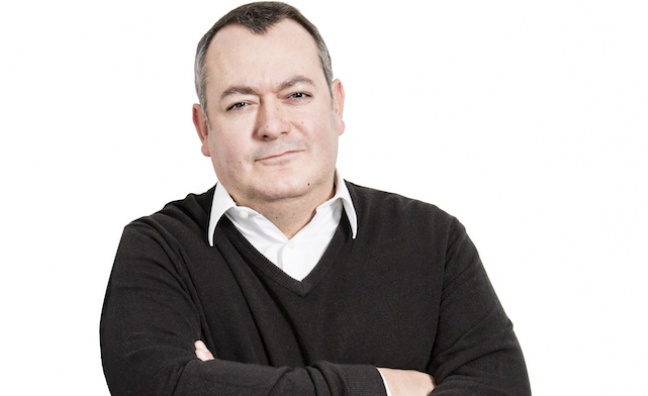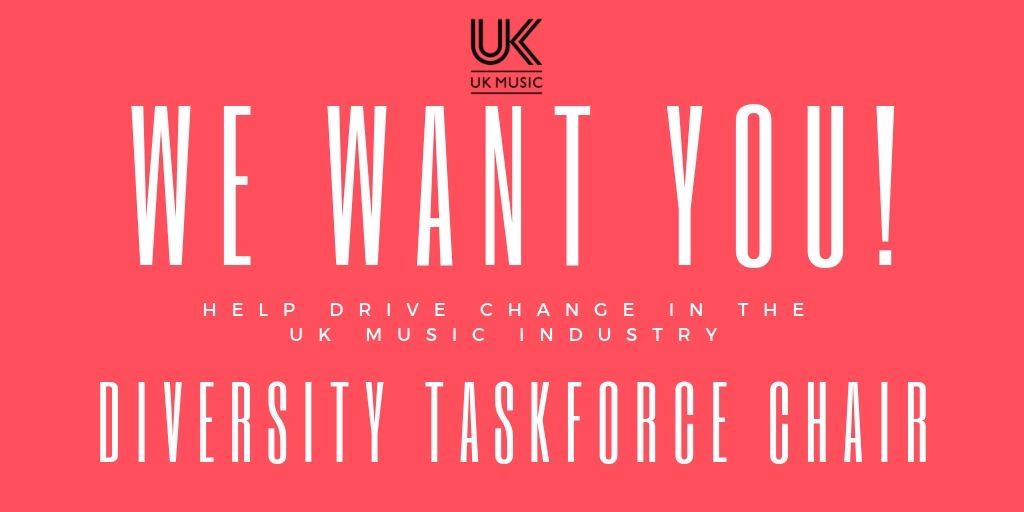In the second of Synchtank’s two-part analysis, Ben Gilbert speaks to key figures across the business to examine how issues of representation can be more effectively tackled to ensure further progress in the years to come. Click here for part one, where we consider how these themes are being addressed in 2019.
“If half of our audience is female, why shouldn’t half of our line-up be so too?” questioned the organisers of Primavera Sound in December, announcing the bill for their 2019 festival. As has been seen on multiple occasions across society, music has the power to profoundly impact culture and the issues of diversity and inclusion are currently at the eye of such a transformative storm. “Why can’t there be equality in schedules, styles and stages?” they continued, balancing a roll-call of stars, from Janelle Monáe, Miley Cyrus, Solange and Christine and the Queens to Tame Impala, Interpol, Nas and Jarvis Cocker, designed to challenge the global festival circuit’s dominant male narrative.
Proudly confirming its first-ever gender-equal line-up, the Barcelona event’s head of international press, Marta Pallarès, called for an end to the “pale, male and stale” paradigm. But they are not alone in championing this mindset and seeking to realign the live music landscape in the long-term. The premise behind Book More Women, for example, has proved to be both deceptively simple and remarkably influential, an illustrative snapshot of the imbalance of festival bills. As Vox commented in an extensive exploration of the discussion: “Lineup posters are a visual presentation of who matters in music right now.”
Coachella Music and Arts Festival 2019
2018: 35%
2019: 35%@coachella #bookmorewomen pic.twitter.com/or0Tfb09gH— Book More Women (@BookMoreWomen) January 3, 2019
Women make up 19% of the average festival bill, according to Pitchfork
This, it would seem, suggests an obsession with male stars. As Pitchfork discovered in a 2018 survey, women make up only 19% of the average festival bill. But there is clearly an intention to address and change this. From Annie Mac’s Equalising Music Pledge, to Stonewall UK’s equality charity, which partnered with AIM earlier this year, and the Let’s Be The Change initiative, which calls for more diversity on industry panels at conferences, much is being done to address these issues domestically.
Elsewhere, Keychange, which is led by PRS Foundation and supported by the European Union’s Creative Europe programme, is seeking to consolidate the message dispatched by Primavera Sound by encouraging festivals and music organisations to achieve a 50:50 gender balance by 2022. In the US, meanwhile, the Recording Academy has launched an inclusion project focused on correcting such inequalities, while She Is The Music are building “the largest global database of female creators and professionals”. But what are the major roadblocks currently preventing a more representative industry?
John Shortell, Equality, Diversity and Inclusion Official at the Musicians’ Union (MU), called for a “360° approach” that reaches far beyond the number of women or BAME artists on a festival bill. “We need to think about the diversity of the people at the top who are making the decisions if we want to create a long lasting, sustainable culture change. The more diverse people deciding who gets booked for a festival, who gets to make a record and who gets played on the radio, brings with it a new set or experiences and perspectives that will in turn diversify the artists that we see and hear,” he told Synchtank.
“We need to think about the diversity of the people at the top who are making the decisions if we want to create a long lasting, sustainable culture change. The more diverse people deciding who gets booked for a festival, who gets to make a record and who gets played on the radio, brings with it a new set or experiences and perspectives that will in turn diversify the artists that we see and hear.”
– John Shortell, Equality, Diversity and Inclusion Official at the Musicians’ Union (MU)
Is the music business in a unique position to facilitate change?
Meanwhile, Dawn James, who leads/co-runs D&I at Kobalt Music, highlighted the division prompted by a “wave of nationalism and isolationism seemingly sweeping the globe”. She said: “People with those views often also have racist, sexist and other bigoted views. As a result, people from marginalized groups experience prejudice, feel unsafe or experience direct physical violence as a result of their appearance, background or lifestyle. We’ve made so many strides forward as a global society in the last 100 years but recently we seem to be taking steps backwards.”
However, she and Shortell both “absolutely” agree that the music business is in a unique and powerful position to facilitate greater diversity and inclusion, issues inherent within society. “Music is something that everyone consumes so it’s ability to communicate messages and address issues is unparalleled. Role models have a massive impact on improving diversity, if people see themselves represented at every level of the industry it sends a really powerful message that careers in the industry are achievable,” said Shortell.
“Music is something that everyone consumes so it’s ability to communicate messages and address issues is unparalleled. Role models have a massive impact on improving diversity, if people see themselves represented at every level of the industry it sends a really powerful message that careers in the industry are achievable.”
– John Shortell, Equality, Diversity and Inclusion Official at the Musicians’ Union (MU)
“Music is one of the most powerful art forms for making people ‘feel’”, explained James, continuing: “Music can also be a community builder, whether it’s a family playing guitar together after dinner (how I grew up), a street party in a city with ragga blasting out of a PA for anyone to dance to, an orchestra in a posh concert hall or a heavy metal gig with everyone dressed in black no matter what their other life choices. Music brings people of different demographics and perspectives together and when people share a common interest then they are more likely to have empathy for each other’s perspectives, which is what tolerance, respect and inclusivity are all about.”
“Music brings people of different demographics and perspectives together and when people share a common interest then they are more likely to have empathy for each other’s perspectives, which is what tolerance, respect and inclusivity are all about.”
– Dawn James, Kobalt
Educators demand a unified approach across the music industry
Other, potentially more radical measures, are expected in the weeks, months and years ahead. The potential introduction of mandatory ethnicity pay gap reporting is viewed as a way of targeting inequality in the workplace. Meanwhile, in a recent Music Week special edition, key figures from the music education sector demanded a unified approach to tackling issues of diversity in the business. “Our industry should boast no boundaries to excellence,” said Harry Leckstein, managing director of Tileyard Education.
Meanwhile, Steph Perrin, Head of Sync at Downtown Music Publishing Benelux and Cloud 9, highlighted the attempts of big corporations such as Nike, ASOS and Netflix to rethink their brands in pursuit of greater diversity and inclusion, while congratulating Primavera for the aforementioned, gender-balanced bill. She also explained how more music supervisors are asking for artists from marginalised groups to appear in their shows, for example US drama The Bold Type, which only features artists who identify as a woman or non-binary.

UK Music CEO Michael Dugher
Reflecting on their 2018 survey, UK Music CEO Michael Dugher commented: “Our latest figures show that the music industry has made good progress in terms of improving diversity. It’s positive that some of the initiatives in place are starting to deliver real improvements. But there is no room for complacency and we still have much more work to do. This includes in the area of people’s socio-economic backgrounds.”
“Our latest figures show that the music industry has made good progress in terms of improving diversity. It’s positive that some of the initiatives in place are starting to deliver real improvements. But there is no room for complacency and we still have much more work to do.”
– Michael Dugher, CEO, UK Music
“Our Securing Our Talent Pipeline report found that 17% of music creators were educated at fee-paying schools, compared with just 7% across the population as a whole. We want people from every background to get the opportunity to work in our fantastic industry,” he told Synchtank. With aspiration and dedication, the future promises a broader, more representative music industry and one that pushes for the same across global society. That future starts now.
This is the second of Synchtank’s two-part analysis assessing diversity and inclusion within the music industry. Click here for part one.
UK Music is currently looking for a new chair for their Diversity Taskforce. If you have an interest in the music industry and a passion for diversity and inclusion find out more here.
